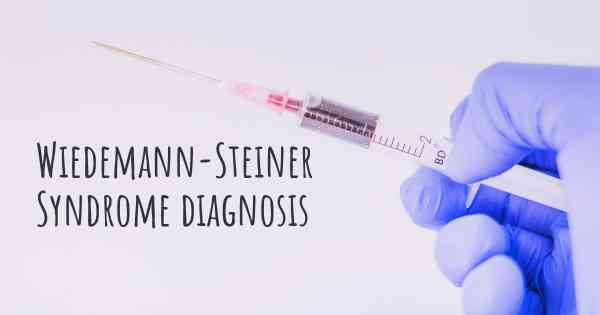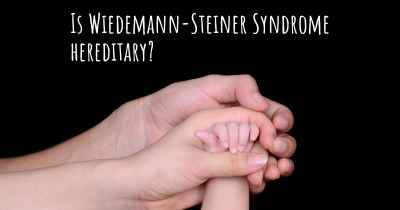4
How is Wiedemann-Steiner Syndrome diagnosed?
See how Wiedemann-Steiner Syndrome is diagnosed. Which specialists are essential to meet, what tests are needed and other useful information for the diagnosis of Wiedemann-Steiner Syndrome

Whole exome sequencing
Posted Jul 18, 2017 by Shannon 1380
If Wiedemann-Steiner syndrome is suspected, analysis of the MLL gene can be carried out. Otherwise, it may be diagnosed by whole-exome sequencing or whole genome sequencing.
There is limited diagnostic testing in this area. The standard screening tests that take place during pregnancy that can diagnose syndromes such as Down Syndrome, don’t diagnose WSS. In addition, baseline genetics diagnostic tests conducted after birth don’t include testing for WSS. Whole exome sequencing has been used to identify most people with WSS. Often times medical professionals don’t offer the option for whole exome testing or the costs associated aren’t covered by insurance or require a large copay limiting individuals from having the testing done. Frequently, patients are given other incorrect medical explanations or a less specific and broader diagnosis, like autism and Rubenstein-Taybi Syndrome. Additionally, once a person reaches a certain age or phase in their lifetime having been mis-diagnosed or gone undiagnosed, he/she may stop looking for answers to their medical trials and tribulations meaning they may never come across a formal WSS diagnosis. There have also been patients with Wiedemann-Steiner syndrome who were initially mis-diagnosed with Kabuki syndrome.
There is limited diagnostic testing in this area. The standard screening tests that take place during pregnancy that can diagnose syndromes such as Down Syndrome, don’t diagnose WSS. In addition, baseline genetics diagnostic tests conducted after birth don’t include testing for WSS. Whole exome sequencing has been used to identify most people with WSS. Often times medical professionals don’t offer the option for whole exome testing or the costs associated aren’t covered by insurance or require a large copay limiting individuals from having the testing done. Frequently, patients are given other incorrect medical explanations or a less specific and broader diagnosis, like autism and Rubenstein-Taybi Syndrome. Additionally, once a person reaches a certain age or phase in their lifetime having been mis-diagnosed or gone undiagnosed, he/she may stop looking for answers to their medical trials and tribulations meaning they may never come across a formal WSS diagnosis. There have also been patients with Wiedemann-Steiner syndrome who were initially mis-diagnosed with Kabuki syndrome.
Posted Jan 16, 2018 by anonymous 3980








